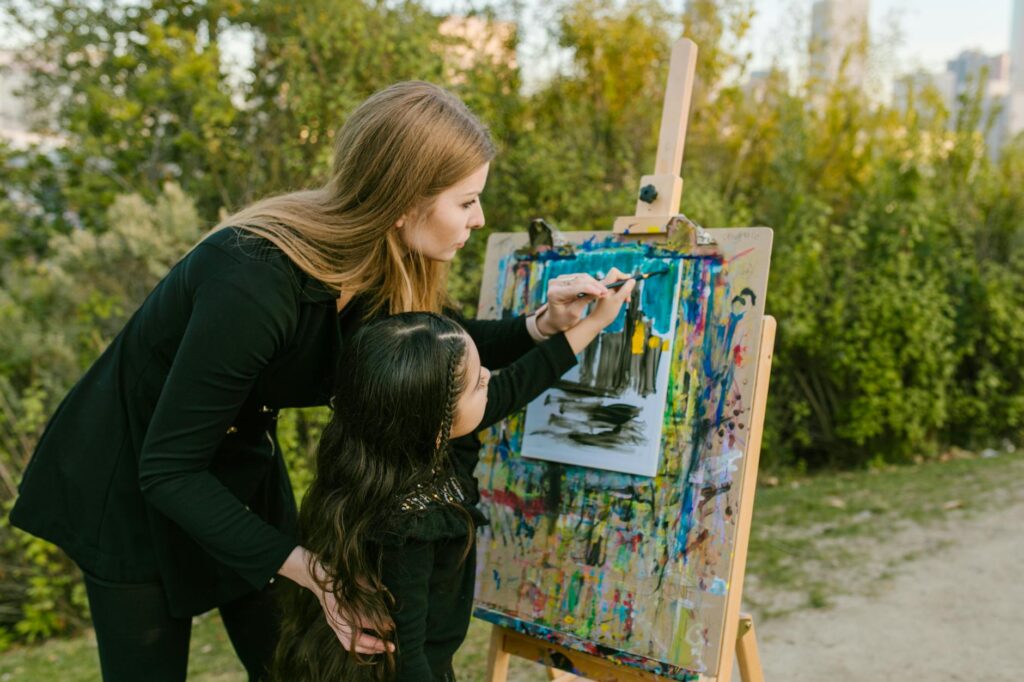What is nurturing creativity?

What is nurturing creativity?
Creativity isn’t just about painting a masterpiece or composing a symphony. It’s a vital part of our lives that enhances personal development and productivity in countless ways. In this article, I’ll explore what nurturing creativity means and share practical techniques to cultivate it in your life. Let’s dive into the colorful world of creativity and see how you can unlock your creative potential.
Understanding Creativity
Creativity is often defined as the ability to generate new ideas or concepts, or to make connections between existing ideas. But what does that really mean, and why is it important?
The Definition of Creativity
At its core, creativity can manifest in various forms—whether it’s problem-solving at work, expressing emotions through art, or innovating in technology. Each time you think outside the box, you engage your creative faculties. It’s not just about artistic endeavors; creativity plays a crucial role in how we approach daily challenges and opportunities.
For a deeper insight into how creativity contributes to personal development, check out this article on The Role of Creativity in Personal Development.
The Role of Creativity in Personal Development
Nurturing creativity is essential for personal growth. It allows you to express yourself authentically and explore new ideas that can lead to self-discovery. When you nurture your creativity, you enhance your ability to adapt and innovate, making you more resilient in facing life’s challenges. Creativity also fosters emotional well-being by providing an outlet for self-expression and reflection.
Techniques for Nurturing Creativity
If you want to cultivate creativity in your life, here are several actionable strategies that can help you unleash your creative spirit.
Cultivating a Creative Environment
The spaces we inhabit influence our thoughts and behaviors. To enhance your creativity, create an environment that inspires you. Surround yourself with items that spark joy and curiosity—art supplies, books, or visual stimuli. Consider redesigning your workspace to be more inviting and less cluttered. A well-organized space can clear your mind, making room for innovative ideas.

Photo by RDNE Stock project
Incorporating Play and Exploration
Remember the joy of playing as a child? Embrace that spirit of exploration as an adult. Allow yourself to experiment without the pressure of achieving success right away. Engage in playful activities that stimulate your imagination, such as doodling, creative writing, or even brainstorming out-of-the-box solutions to problems. By letting go of rigid expectations, you give your creativity the freedom to flourish.
For more insights on nurturing creativity, check out this resource on 7 Ways to Nurture Creativity.
Mindfulness and Reflection Practices
Mindfulness can play a vital role in nurturing creativity. By practicing mindfulness, you can declutter your mind and focus on the present moment. This clarity can lead to greater creative insights. Techniques such as meditation, journaling, or even a simple walk in nature can help you reflect and connect with your inner thoughts. When your mind is clear, you’re more open to creative ideas.
Overcoming Creative Blocks
Even the most creative individuals face blocks that hinder their ability to think freely. Understanding these barriers can help you overcome them.
Identifying Personal Creative Blocks
Creative blocks can stem from various sources—fear of failure, perfectionism, or even external pressures. Take a moment to reflect on what might be holding you back. Are you afraid to share your ideas? Do you feel your work must meet certain standards? By recognizing your personal blocks, you can start developing strategies to overcome them.
Strategies for Overcoming Blocks
Once you identify your blocks, it’s time to tackle them. Here are a few practical tips:
- Set Small Goals: Break larger projects into manageable tasks. Completing smaller goals can build momentum and motivation.
- Change Your Routine: Sometimes, a change of scenery or routine can reignite your creative spark. Try working in a different location or at varying times of the day.
- Seek Inspiration: Surround yourself with creative influences—books, podcasts, or engaging with like-minded individuals. Inspiration can come from the most unexpected places.
For more strategies on overcoming creative blocks, you can refer to this article on Overcoming Creative Blocks.
The Benefits of Nurturing Creativity
Nurturing your creativity brings numerous benefits that can enrich both your personal and professional life.
Enhanced Problem-Solving Skills
By embracing creative thinking, you improve your ability to solve problems. Creative individuals often approach challenges from different angles, leading to innovative solutions that others might overlook. When you nurture creativity, you’re not just enhancing your artistic skills; you’re becoming a better thinker and problem-solver.
Increased Work-Life Balance
Creativity also contributes to a more balanced and fulfilling life. Engaging in creative activities can reduce stress and promote well-being. Whether it’s painting, writing, or playing music, these activities can serve as outlets for expression, helping you manage daily stressors more effectively.
Incorporating creative practices into your routine can foster a sense of fulfillment that extends beyond work, leading to a more harmonious work-life balance.
Conclusion
Nurturing creativity is a continuous journey that requires intention and practice. By fostering a creative environment, allowing time for play, and using mindfulness techniques, you can unlock your creative potential. Remember to identify and overcome any personal blocks that may arise. Embrace the benefits of creativity, such as improved problem-solving skills and a healthier work-life balance. Start implementing these techniques today and watch as your creative abilities flourish. Creativity is waiting to be nurtured in you—don’t let it go unnoticed!